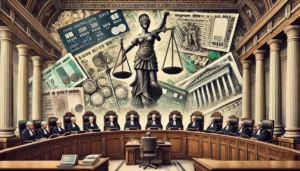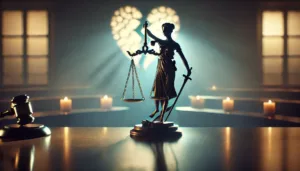Facts of the Case
The appellants, claiming to be the elected Secretary and President of the Executive Committee of the Oachira Parabrahma Temple in Kerala, challenged two orders of the Kerala High Court. The High Court directed the framing of a Scheme for the temple’s administration and replaced the elected Executive Committee with an unelected committee supervised by an Administrative Head. The temple, unique and ancient, has no idol or sanctum sanctorum but manages extensive properties, including a hospital and educational institutions. Disputes arose regarding the management and control of the temple, prompting litigation over the administration.
Contentions of the Appellant
The appellants contended that the High Court overstepped its jurisdiction after disposing of the Regular First Appeal (RFA) by entertaining a subsequent interlocutory application and issuing orders. They argued that the replacement of the elected committee with an unelected one violated the temple’s bye-laws, which require elected bodies to continue until the next elections. They further raised concerns about the Administrative Head’s decisions, alleging inadequate consultation and interference in temple operations.
Contentions of the Respondent
The respondents supported the High Court’s actions, stating that they were necessary to ensure proper administration of the temple until the framing of the Scheme and elections. They refuted allegations of misconduct and maintained that the Administrative Head acted within his mandate to manage the temple and its institutions during the transitional period.
Issues in the Judgment
- Whether the High Court, after disposing of the RFA, retained jurisdiction to entertain an interlocutory application and issue further orders.
- Whether the High Court was justified in removing the elected Executive Committee and appointing an unelected committee under the supervision of an Administrative Head.
Observations/Findings by the Supreme Court
The Court observed that the administration of the temple and its institutions is governed by its bye-laws, with elected bodies holding a five-year term. Recognizing the disputes in management, the Court noted that framing a Scheme and holding elections were imperative for resolving administrative conflicts. The Court acknowledged the High Court’s intention to ensure effective administration but found it necessary to modify the impugned orders to protect the temple’s governance framework and expedite elections.
Principle of the Case
Judicial intervention in temple administration must respect the temple’s bye-laws and aim to restore governance through lawful processes, including elections, while safeguarding the temple’s interests and resolving disputes effectively.
Final Order
The Supreme Court appointed a new Administrative Head to oversee the election process for the temple’s governing bodies within four months. The Administrative Head was authorized to appoint assistants and utilize temple funds for election-related expenses. The existing administrative arrangements would continue until the elections, after which the elected body would take charge. The High Court’s orders were modified accordingly, and the Civil Appeals were disposed of.
Impact on Public Law and Order
This judgment emphasizes adherence to governance frameworks in managing religious and public institutions. It reinforces the principle that judicial intervention should respect institutional autonomy while addressing administrative conflicts, promoting trust among stakeholders. The decision sets a precedent for balancing oversight with lawful governance, ensuring public faith in the judiciary’s role in preserving institutional integrity.
Case Citation
Supreme Court of India, Oachira Parabrahma Temple & Anr. v. G. Vijayanathakurup & Ors., Civil Appeal Nos. 13708-13709 of 2024 (Arising out of SLP (C) Nos. 10598-10599 of 2023), Judgment dated 3rd December 2024.








